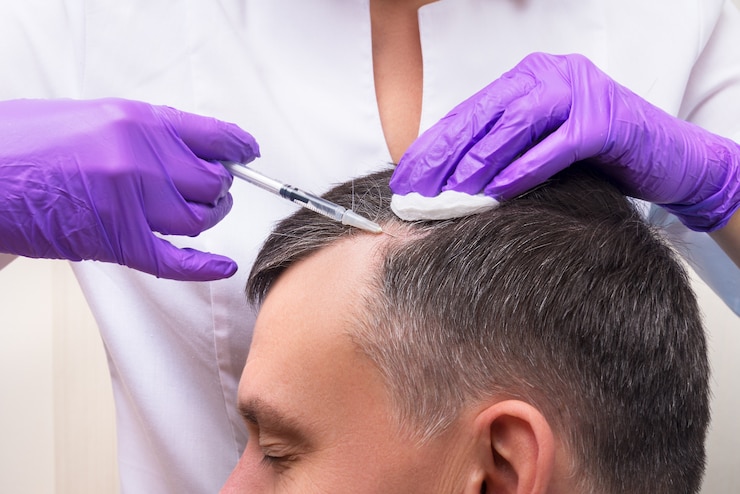Is Scalp Analysis by Best Trichologists Useful?

In recent years, scalp health has gained significant attention among those seeking long-term solutions for hair loss, dandruff, itching, and thinning hair. More people are turning to specialists such as trichologists for expert insight and care. Particularly, the Best Trichologists in Dubai are becoming popular for offering in-depth scalp analysis services that go beyond the surface to identify root causes of hair and scalp issues. But this leads to an important question: Is scalp analysis by top trichologists genuinely useful, or is it just another trend in the beauty and wellness industry?
Understanding Scalp Analysis: A Scientific Approach
Scalp analysis is a diagnostic method used to evaluate the condition of the scalp and hair follicles. Best Trichologists use tools like high-resolution microscopes, dermatoscopes, or digital scalp scanners that provide a magnified and detailed view of the scalp’s health.
- Hair density and follicle activity
- Scalp oiliness or dryness
- Signs of inflammation or infection
- Blocked or damaged follicles
- Scalp scaling or flakiness
- Hair shaft abnormalities
Who Are Trichologists and What Makes Them Different?
Trichologists are certified professionals specializing in hair and scalp health. Their focus isn’t cosmetic, but rather clinical. They study conditions such as alopecia (hair loss), seborrheic dermatitis, scalp psoriasis, folliculitis, and other dermatological or nutritional imbalances affecting hair growth.
The Importance of Scalp Health in Hair Growth
To understand the value of scalp analysis, it’s important to grasp the link between scalp health and hair growth. The scalp is, after all, the soil from which hair grows. If the soil is poor, the crop (hair) will also be unhealthy.
- Inflammation: Inflammatory responses can shrink hair follicles and disrupt their natural growth cycles.
- Oil Imbalance: Excessive sebum can clog pores, while dryness can cause irritation and flaking.
- Fungal or Bacterial Overgrowth: Conditions like seborrheic dermatitis or folliculitis often stem from microbial imbalance.
- Product Buildup: Accumulation of styling products can suffocate follicles over time.
What Happens During a Scalp Analysis Session?
A session with a qualified trichologist typically includes:
Consultation and History: This involves discussing lifestyle, diet, medical history, hair care routines, stress levels, and hereditary conditions.
Visual Inspection: The trichologist examines the scalp and hair strands without tools for visible signs of flaking, redness, sores, or thinning patterns.
Microscopic Scalp Scanning: Using magnification tools, the scalp is examined in detail. Images may be taken and analyzed to look at hair shaft structure, follicular density, and scalp texture.
Diagnosis and Discussion: Based on the findings, the trichologist explains what’s occurring beneath the surface and offers customized treatment options.
Benefits of Scalp Analysis
So, is scalp analysis useful? The answer lies in the numerous benefits it provides:
Personalized Diagnosis
Many people try various shampoos or home remedies without understanding the actual cause of their issue. Scalp analysis eliminates guesswork. By identifying the precise condition, whether it’s androgenic alopecia, scalp psoriasis, or just excessive dryness, the trichologist can develop a treatment plan that’s tailored and effective.
Early Detection of Serious Issues
Conditions like alopecia areata, lichen planopilaris, or even early signs of autoimmune disorders can show up as scalp issues first. Early detection through analysis allows for timely intervention, potentially preventing irreversible hair loss.
Monitoring Treatment Progress
For individuals undergoing treatment—whether topical solutions, supplements, or therapies like PRP—scalp analysis helps track progress over time. Trichologists can take follow-up images to show improvements or detect issues that require adjustments in the treatment.
Improved Scalp Hygiene and Care
The session often includes advice on how to maintain scalp hygiene, including product recommendations and scalp massages. These practices are often overlooked but are essential for long-term hair vitality.
Education and Empowerment
A good scalp analysis doesn’t just inform; it empowers. Understanding what’s happening with your scalp and hair helps you make informed decisions about treatments, lifestyle changes, and product choices.
Common Conditions Diagnosed Through Scalp Analysis
Here are some conditions that are frequently identified during professional scalp evaluations:
- Telogen Effluvium: A form of temporary hair loss often linked to stress, childbirth, or illness.
- Androgenetic Alopecia: Genetic hair loss often presenting as thinning in specific patterns.
- Seborrheic Dermatitis: A chronic scalp condition marked by greasy scales and inflammation.
- Scalp Psoriasis: Characterized by thick, red patches covered with silvery scales.
- Traction Alopecia: Caused by tight hairstyles that pull on the hair roots over time.
- Folliculitis: Inflammation or infection of the hair follicles, often leading to sores or bumps.
Final Thoughts:
Absolutely. It is not a gimmick or just another beauty treatment. It is a science-backed, investigative approach to understanding one of the most ignored parts of our body—our scalp. It gives individuals the clarity and confidence to take informed steps toward healthier hair and long-term solutions. While scalp analysis may not promise overnight results, it lays the groundwork for sustainable scalp health and improved hair vitality. For anyone serious about treating the cause, not just the symptoms, of hair and scalp problems, it’s a valuable first step.



